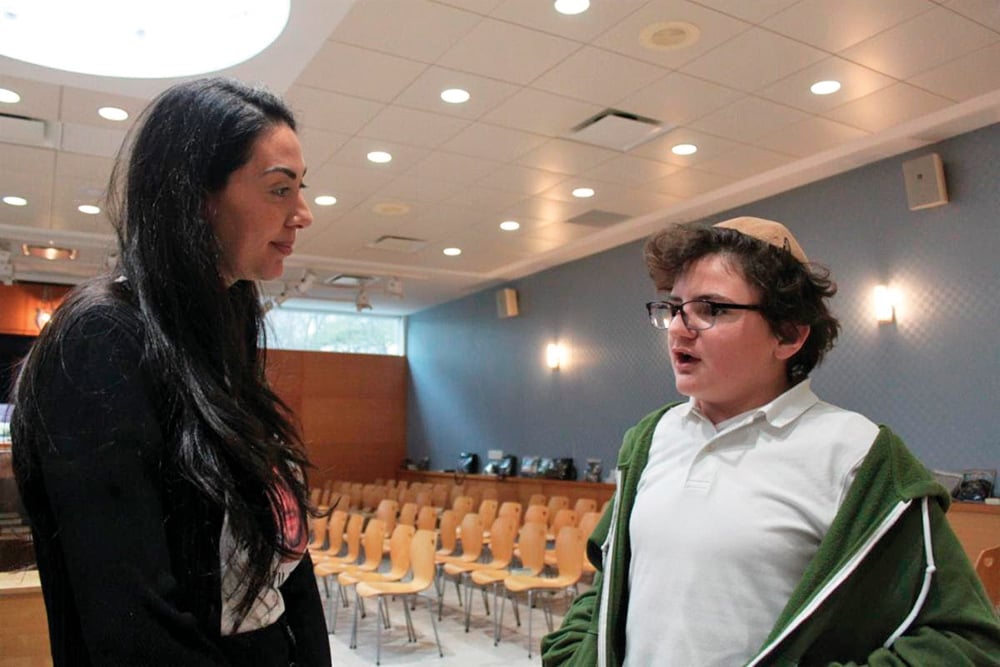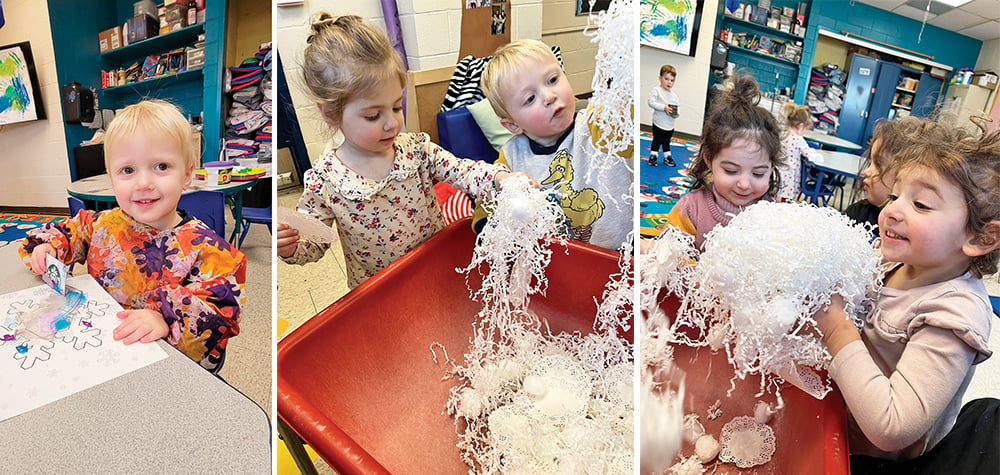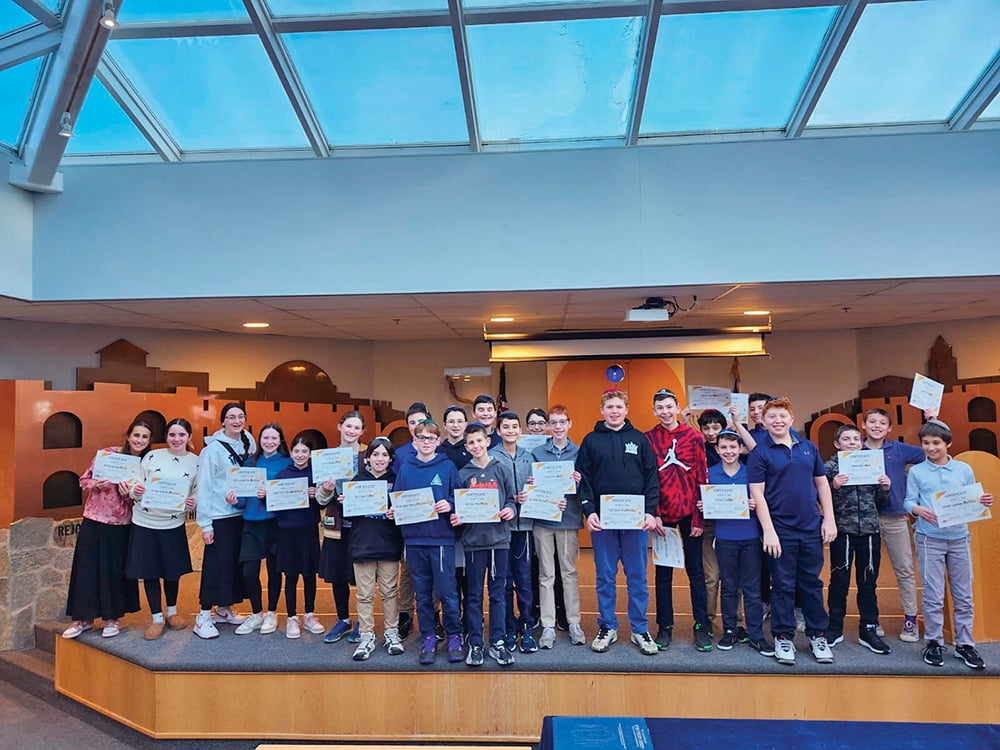
Since its founding, the United States has almost never provided direct, set-aside federal funding for nonpublic schools, other than supporting students through IDEA, for special needs programs, or Title I (targeted educational assistance) programs. In fact, before last week, there was only one instance ever in which Jewish day schools and Catholic parochial schools were included in federal relief legislation: After Hurricane Katrina, there was federal money granted to support schools that took in students dislocated from Louisiana. The Orthodox Union successfully advocated in 2005, with support and partnership from Sen. Ted Kennedy (D-Mass.), for affected Jewish and Catholic schools to receive those subsidies along with public schools.
But that funding was but a miniscule drop in the bucket compared to funds awarded to nonpublic schools with the recently passed COVID-19 relief bill.
The legislation signed by the president early this week allocates a new $4.05 billion to the Governor’s Emergency Education Relief fund that was created in the spring by the Coronavirus Aid, Relief and Economic Security (CARES) Act. The new bill explicitly sets aside a whopping $2.75 billion for authorized use and reimbursements to nonpublic schools, which will serve to defray pandemic-related costs for Jewish day schools, Catholic parochial schools and other nonpublic schools.
“We really achieved a historic thing,” said the Orthodox Union Advocacy Center’s executive director, Nathan Diament. “In the past, as a general matter, getting federal funds specifically to nonpublic schools has been a challenge.
“While we support the public schools being taken care of, in this era the nonpublic schools were terribly disrupted at the same level, so we advocated for the private schools to be supported as well,” he said. Diament explained that federal teachers unions, as well as their congressional supporters, generally oppose all funding allocations for private schools.
The OU Advocacy Center is the non-partisan public policy arm of the nation’s largest Orthodox Jewish organization. It represents nearly 1,000 congregations nationwide, and 1,000 Jewish day schools. It works collaboratively with the OU’s Teach Coalition, led by Maury Litwack, which leads advocacy efforts for education funding at the state level. Both groups work toward the same goal: to engage leaders at all levels of government, as well as the broader public, to promote and protect the Jewish community’s interests and values in the public-policy arena.
In an interview, Diament described the “full court press” lobbying effort made by a powerful alliance that has grown between the United States Conference of Catholic Bishops and the OU, with both groups working in tandem around the clock to lobby members of the House and Senate for their support. Diament added that after Shabbat last week as the bill was still being negotiated, he was told by a Congressional staff member that a representative of the Catholic Bishops had called him on Saturday, saying he was calling on behalf of the OU, because “his Jewish counterparts were offline observing the Sabbath.”
A representative of the Catholic Bishops partnering so seamlessly with the OU certainly adds cachet to the term “Shabbos goy.”
Diament said he had asked various individuals with relationships with individual legislators to call them to lobby for support for the bill. “I have a good relationship with Speaker Pelosi (D-Calif), and we had her support. Cardinal Dolan from New York made calls to Sen. Chuck Schumer (D-NY) and others. The Cardinal of Chicago called Sen. Dick Durbin (D-Illinois). We even asked former Sen. Joe Lieberman (I-Conn.) to call Sen. Susan Collins (R-Maine), with whom he had served and maintained a cordial relationship, to secure her initial support for the funding.”
Collins, in fact, ended up as part of a bipartisan group that broke a months-long stalemate on the pandemic-relief legislation in the Senate, working alongside Sen. Joe Manchin (D-W.Va.). Reps. Josh Gottheimer (D-N.J.) and Tom Reed (R-N.Y.) of the Problem Solvers Caucus worked concurrently with them, leading the effort in the House of Representatives. “We had to make sure our funding request was part of the initial bill in both the House and Senate, and it was. There were a few times that our opponents tried to put in ‘poison pill’ conditions, like any schools that took PPP funding could not have access to these funds, but we were gratified that the funding stayed put and was passed as part of the final legislation,” said Diament.
“It’s absolutely vital that all our local communities, school districts, educators, and students have the resources they need to make it through this crisis,” said Rep. Gottheimer, in a statement to The Jewish Link following the bill’s passage. “It’s an understatement to say that, after a long journey, I’m relieved for the American people that the bipartisan emergency COVID-19 relief package has been signed into law.”
“I’m proud of the critical role that the bipartisan Problem Solvers Caucus played, working alongside our Senate partners, to help make this possible,” Gottheimer added.
The funding will be distributed to governors, and the OU will work to provide information to schools on how to access the funds. Nonpublic schools, including the 1,000 Jewish day schools in the country, will now have access to reimbursements for purchasing supplies to sanitize and clean school facilities; purchasing PPE; improving ventilation, air purifying and HVAC systems; purchasing physical barriers; other materials and equipment to implement public health protocols and CDC guidelines; expanding capacity for Covid testing and contact tracing; educational technology and software; redeveloping instructional plans and curricula; maintaining remote learning; reasonable transportation costs; and reimbursement for expenses for any of the authorized uses (except for redeveloping instructional plans and maintaining distance learning).













